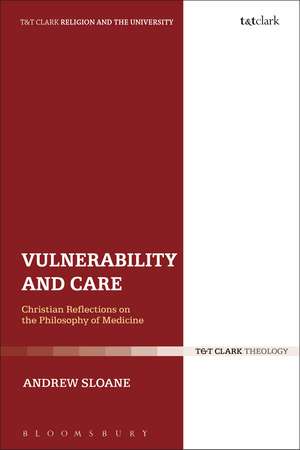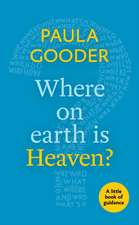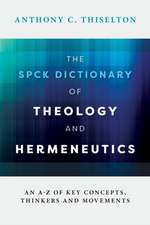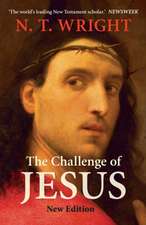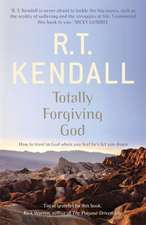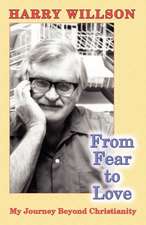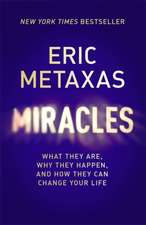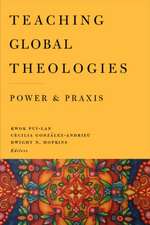Vulnerability and Care: Christian Reflections on the Philosophy of Medicine: Religion and the University
Autor Dr Andrew Sloaneen Limba Engleză Paperback – 25 iul 2018
| Toate formatele și edițiile | Preț | Express |
|---|---|---|
| Paperback (1) | 236.74 lei 6-8 săpt. | |
| Bloomsbury Publishing – 25 iul 2018 | 236.74 lei 6-8 săpt. | |
| Hardback (1) | 773.23 lei 6-8 săpt. | |
| Bloomsbury Publishing – 27 ian 2016 | 773.23 lei 6-8 săpt. |
Preț: 236.74 lei
Preț vechi: 305.22 lei
-22% Nou
Puncte Express: 355
Preț estimativ în valută:
45.30€ • 49.41$ • 38.20£
45.30€ • 49.41$ • 38.20£
Carte tipărită la comandă
Livrare economică 24 aprilie-08 mai
Preluare comenzi: 021 569.72.76
Specificații
ISBN-13: 9780567683618
ISBN-10: 0567683613
Pagini: 224
Dimensiuni: 156 x 234 x 19 mm
Greutate: 0.31 kg
Ediția:NIPPOD
Editura: Bloomsbury Publishing
Colecția T&T Clark
Seria Religion and the University
Locul publicării:London, United Kingdom
ISBN-10: 0567683613
Pagini: 224
Dimensiuni: 156 x 234 x 19 mm
Greutate: 0.31 kg
Ediția:NIPPOD
Editura: Bloomsbury Publishing
Colecția T&T Clark
Seria Religion and the University
Locul publicării:London, United Kingdom
Caracteristici
Provides Christians with a coherent and integrated understanding of medicine as a social practice
Notă biografică
Dr Andrew Sloane is Senior Lecturer in Old Testament and Christian Thought and Director of Postgraduate Studies at Morling Theological College (affiliated with the Australian College of Theology and the University of Divinity), Australia. He studied medicine at the University of NSW and practiced briefly as a doctor before studying theology at Morling College, where he completed both his BTh (1990) and his ThD (1994) through the Australian College of Theology. He has ministered in Baptist churches and been on faculty at Ridley (Anglican) College in Melbourne (1996-2002) and Morling (Baptist) College (2002-). His publications include articles in bioethics, philosophy, and the Old Testament; On Being a Christian in the Academy (2003); At Home in a Strange Land (2008).
Cuprins
Acknowledgements1. Introduction2. Entering the world of medicine3. Why bioethics needs a philosophy (and theology) of medicine4. Perspectives on philosophy of medicine5. Perspectives on theology of medicine6. Finding the target: Messer's theology of health7. A philosophical-theological framework for medicine8. Human vulnerability and the goods of medicine9. Re-engaging the world of medicineBibliographyIndex
Recenzii
This reviewer encourages readers who are interested in pursuing medicine as a profession, bioethicists, theologians, or anyone just curious about an insider's view to read this work. The history, philosophies, and theologies discussed within, as well as the medical and bioethical questions raised, make Sloane's work well worth the time spent reading.
Andrew Sloane's Vulnerability and Care is a brave attempt to redefine our approach to one of civilisation's most enduring endeavours ... This is a thought-provoking book.
Modern medicine is sick and the scandals that have made it so have not been, for the most part, failures of technical competence but more fundamental failures of care. In this ground-breaking book, Andrew Sloane examines a wide range of topics from Ebola to euthanasia, from evidence-based medicine to organ donation through the lenses of theology and philosophy and comes to a radical conclusion. His central thesis is that the primary goal of medicine is not healing and alleviating suffering, at the expense of care for the vulnerable, but rather it is to care for the vulnerable including healing and alleviating suffering where possible. When we can't cure, we must still care, and Dr Sloane makes a powerful case for why we need to change the focus of the practice of medicine before it loses its soul completely.
Few would disagree with Andrew Sloane's claim that medicine is searching for a clear understanding of what it is about, but his contention that it is not primarily about health and healing and the alleviation of suffering is much more contentious. Through a careful and engaging analysis of some current medical issues, contemporary bioethics and the relevant philosophical and theological literature, he convincingly justifies both claims. His view is that medicine is not so much about health care but about health care. That it is first and foremost a moral practice (rather than a science) which recognises our human solidarity in weakness, frailty and finitude. A major challenge to the standard Christian and secular understandings of the nature of medicine.
Andrew Sloane brings a rich double background to this provocative and much needed work on the philosophy of medicine. He is trained in both medicine and theology. William James described philosophy as a particularly stubborn attempt to think clearly. The best theology is equally the result of such stubbornness. Clarity and careful reflection informed by both fields are much in evidence in this volume. So too is Sloane's concern for the vulnerable and their need of care informed by his Christian worldview that frames the discussion. Sloane believes that "medicine is searching for a clear understanding of what it is and what it is about." This volume is an important response to that search because it deals not just with descriptive questions but the normative ones of how medicine it to be thought about and what the proper ends of medical practices ought to be.
Andrew Sloane's Vulnerability and Care is a brave attempt to redefine our approach to one of civilisation's most enduring endeavours ... This is a thought-provoking book.
Modern medicine is sick and the scandals that have made it so have not been, for the most part, failures of technical competence but more fundamental failures of care. In this ground-breaking book, Andrew Sloane examines a wide range of topics from Ebola to euthanasia, from evidence-based medicine to organ donation through the lenses of theology and philosophy and comes to a radical conclusion. His central thesis is that the primary goal of medicine is not healing and alleviating suffering, at the expense of care for the vulnerable, but rather it is to care for the vulnerable including healing and alleviating suffering where possible. When we can't cure, we must still care, and Dr Sloane makes a powerful case for why we need to change the focus of the practice of medicine before it loses its soul completely.
Few would disagree with Andrew Sloane's claim that medicine is searching for a clear understanding of what it is about, but his contention that it is not primarily about health and healing and the alleviation of suffering is much more contentious. Through a careful and engaging analysis of some current medical issues, contemporary bioethics and the relevant philosophical and theological literature, he convincingly justifies both claims. His view is that medicine is not so much about health care but about health care. That it is first and foremost a moral practice (rather than a science) which recognises our human solidarity in weakness, frailty and finitude. A major challenge to the standard Christian and secular understandings of the nature of medicine.
Andrew Sloane brings a rich double background to this provocative and much needed work on the philosophy of medicine. He is trained in both medicine and theology. William James described philosophy as a particularly stubborn attempt to think clearly. The best theology is equally the result of such stubbornness. Clarity and careful reflection informed by both fields are much in evidence in this volume. So too is Sloane's concern for the vulnerable and their need of care informed by his Christian worldview that frames the discussion. Sloane believes that "medicine is searching for a clear understanding of what it is and what it is about." This volume is an important response to that search because it deals not just with descriptive questions but the normative ones of how medicine it to be thought about and what the proper ends of medical practices ought to be.
